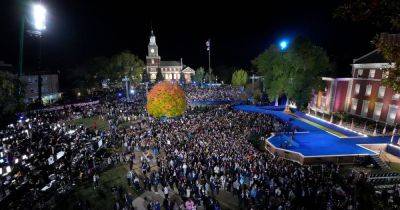Astronomers have discovered a new one-of-a-kind 'steam planet'
A steam-shrouded planet unlike any we’ve seen before has been detected nearly 100 light years away. The planet, known as GJ 9827 d, is roughly twice the size of Earth and has an atmosphere composed almost entirely of water vapour, according to a new study.
“This is the first time we’re ever seeing something like this,” said Eshan Raul, who analysed the James Webb Space Telescope, or JWST, data of GJ 9827 d as an undergraduate student at the University of Michigan. “To be clear, this planet isn’t hospitable to at least the types of life that we’re familiar with on Earth. The planet appears to be made mostly of hot water vapour, making it something we’re calling a ‘steam world.'”
Astronomers have theorised that such planets exist, but this study represents the first observational confirmation of a steam world. And, although GJ 9827 d can’t support life as we know it, discovering its unique atmosphere opens new possibilities for studying other small planets and their potential to host life. The study, led by Caroline Piaulet-Ghorayeb at the University of Montréal’s Trottier Institute for Research on Exoplanets, used a technique called transmission spectroscopy to measure the atmospheric composition of GJ 9827 d. Transmission spectroscopy measures how much starlight is absorbed by a planet’s atmosphere at different wavelengths, or colours, of light.
READ MORE: NASA launches mission to see if Jupiter's moon could support life
To date, almost all exoplanets with measured atmospheres are mainly made of the lightest elements—hydrogen and helium—like the gas giants Jupiter and Saturn in our solar system, Piaulet-Ghorayeb said. That is, they’re markedly different from Earth’s life-enabling environment.
“GJ 9827 d is the first








